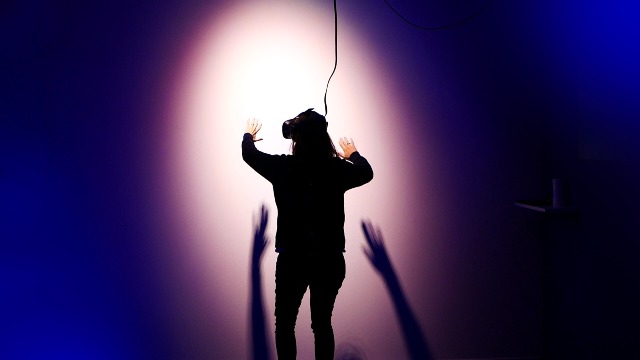Digital Sanity: Folks Who Use VR Headsets Having fun with Life Extra Throughout Lockdown
People who use virtual reality headsets to while the lockdown pass the time exercising harder and feeling better about life.
A new study conducted by the University of Portsmouth looked at the use of VR technology in adults of all ages from around the world.
It is one of the first to investigate the effects of VR during lockdown and is published in Health and Technology magazine.
The results were clear: those who used VR headsets as a pastime during lockdown were using the headsets for a lot more than just gaming. They used the device to exercise, meditate, socialize, and watch movies.
The lead author, Dr. Alessandro Siani of the university’s School of Biological Sciences said: “VR seems to have had a strikingly positive impact on people’s mental and physical wellbeing in times of forced lockdown.
“The participants reported that“ exer gaming ”with a VR headset resulted in significantly more physical activity than with a conventional game console. The vast majority of them also said that using VR was beneficial to their mental health. “
The feel-good effect was so pronounced that Dr. Siani suggests that the technology could be part of the arsenal of tools and strategies to improve the mental and physical health of users.
He said: “The pandemic marked a turning point in human history and had a dramatic negative impact on people’s health and well-being.
“Lockdowns have affected people of all ages around the world. Isolation and stress have increased the number of people reporting stress, depression, irritability, insomnia, anxiety, confusion, anger, frustration, and boredom.
“At the same time, barriers have put an enormous strain on people’s physical fitness, as the gyms are closed and access to nature is strictly limited.
“Both the mental and physical stresses are high and will not necessarily end when the bans are lifted. Governments around the world will soon have to deal with the mental health and physical wellbeing of citizens, if they have not already done so. “
The study examined the use of VR by 646 people from 47 countries at the height of the first lockdown in late May and early June 2020.
While most used their VR device for immersive gaming the most, they also used it almost as often for exercising and exercising more vigorously than those who had a game console without VR capability.
Previous research showed that people who watched a 3D 360-degree VR video for ten minutes a day were less afraid.
VR headsets have quickly evolved from a niche gadget for tech-savvy gamers to a significantly cheaper and widespread device that is also used at home, as entertainment, in education, business, and healthcare.
The ability of a user wearing a VR headset to move around freely instead of being glued to a sofa has sparked a trend in so-called “exer gaming,” but its use is beyond the profile of the typical gamer and VR Exercise software is now widely used in physical rehabilitation and for the elderly.
Around three quarters of those surveyed said that the use of VR increased during the lockdown.
Most said they would use it more to pass the time while on lockdown. Almost all – 98 percent – used VR to play one to four hours a day. About 75 percent used it for fitness (and for a similar amount of time as playing). 52 percent to make contacts; 47 percent to watch movies; and 37 percent meditate.
A majority of respondents said that VR activities offered them an alternative way to stay fit and active at home, and almost all of them said that using the technology had positive effects on their mental health.
Dr. Siani said that while this is a preliminary study based on participants’ self-assessment of their use of VR. However, further studies would be advisable to examine the effects of using VR in supervised conditions for a more complete picture of its benefits. The results of this study could be a stepping stone for the implementation of VR-based strategies to support the mental and physical health of the population – including in the post-Covid-19 world.
Reference:
Siani A, Marley SA. Influence of recreational use of virtual reality on physical and mental well-being during the Covid-19 lockdown. Health Technol. 2021; 11 (2): 425- 435. doi: 10.1007 / s12553-021-00528-8
This article has been republished from materials from the University of Portsmouth. Note: The material may have been edited for length and content. For more information, please refer to the specified source.


Comments are closed.